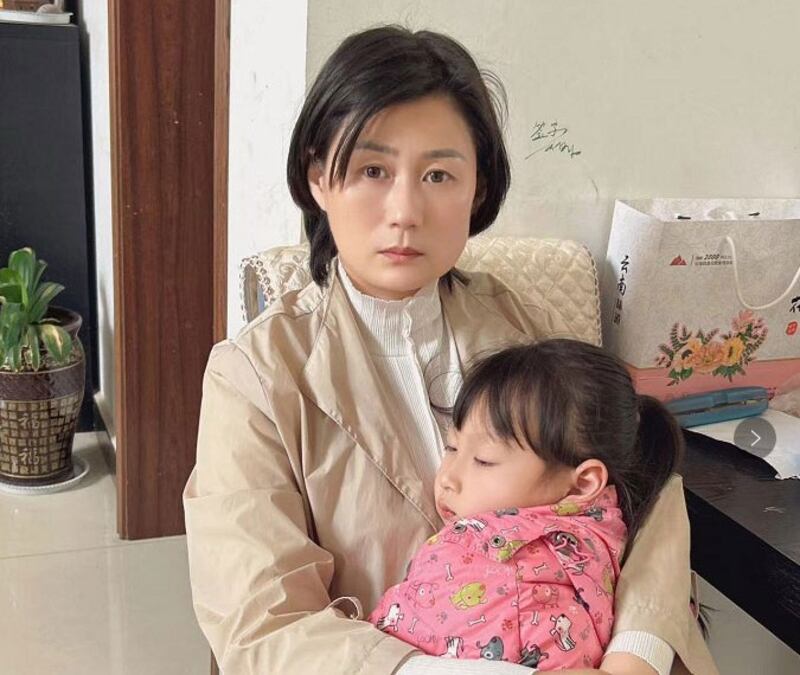A dissident in the southwestern Chinese province of Yunnan has called on police to investigate the drowning of her two-year-old nephew, citing unanswered questions about how the toddler ended up in a river after his grandmother lost sight of him.
The family’s suspicions were raised after officials and police in the eastern Chinese province of Jiangsu turned up shortly after the fatal drowning and took away the body of two-year-old Wang Hao, Wang Li told Radio Free Asia.
Wang Li, who is currently under close surveillance as her poet husband Wang Zang serves a jail term for "subversion," said Wang Hao drowned on the afternoon of March 12 in his home village of Sanhe, Guannan county.
The child had been with his grandmother, who lost sight of him.
His body was later found floating face down in a nearby creek, and was fished out by his mother, who waded in to retrieve him despite not knowing how to swim, Wang Li said.
Surveillance failure
Wang Li said there had been some suspicion around how the child had died, with the incident not being caught by China’s pervasive system of surveillance cameras. She said local police told her there was no surveillance footage from the scene, with a nearby camera lacking a memory card at the time.
"He was floating there in the water, but the clothes around the back of his neck were dry," she said. "My mother said someone must have seen what happened, but nobody did."
"Someone could have gone to get my mother, and if they had, the child wouldn't be dead."

No sooner had Wang Li's mother pulled the drowned child from the water than the Sanhe village Communist Party secretary turned up at the scene, and directed people to take the child's body away without the family's consent, Wang Li said.
"My brother was holding the child's body at the time, and they forced his hands apart and took the body despite my brother saying he didn't consent," she said."The party secretary claimed that he quickly arranged for the body to be disposed of because he thought the family was too stricken by grief to do it."
Wang Li called on local police to investigate.
"We just want to know how the child ended up in the creek," she said.
Beijing-based human rights activist Ni Yulan said there are questions to be answered about possible foul play.
"If it was a normal drowning, they would come to comfort the family, not go burying the child in such a hurry," Ni said. "The party secretary should understand the law, and know that the child's body belongs to his family."
"For the party secretary to do this is a violation of legal procedures [around funeral arrangements] as well as being very unfair on the family," she said.
Gag order
Yunnan police slapped a gag order, travel ban and round-the-clock surveillance on Wang Li and the children she has with Wang Zang as part of a nationwide "stability maintenance" operation during the National People's Congress in Beijing.
The ongoing surveillance of Wang Li and the couple's children despite her release from prison at the end of her shorter sentence comes amid a nationwide mobilization of law enforcement agencies as part of China's " stability maintenance" program. The program aims to nip any form of public protest or criticism of the government in the bud during key political events or on sensitive dates.
Wang Zang and Wang Li were both jailed after a closed-door hearing of the Chuxiong Yi Autonomous Prefecture Intermediate People's Court, which found them guilty of "incitement to subvert state power" after they gave interviews to foreign media organizations.
Translated by Luisetta Mudie. Edited by Alex Willemyns and Malcolm Foster.
